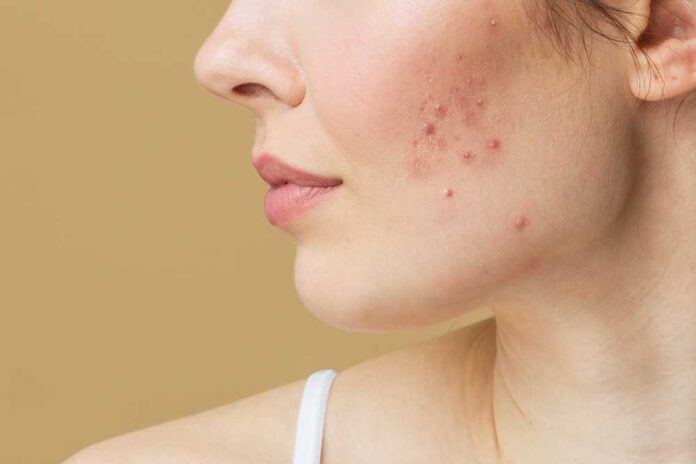
Hormonal acne is not a debilitating medical condition. However, walking around with pimple heads you thought you had no business with after puberty may be embarrassing. So why do these “teenage” problems exist even in adulthood, and what can one do about such problems?
What is Hormonal Acne?
Hormonal acne is a condition where you develop acne based on hormonal fluctuations. Although it is usually associated with the hormonal fluctuations you experience during puberty, hormonal acne can affect adults of all ages.
Experts have noted that although hormones may not cause adult acne, hormonal imbalance can lead to acne in adults. Further, research has estimated that 50 percent affects 25 percent of women aged 40 to 49.
Features Of Hormonal Acne
Hormonal acne usually appears in the T-zone during puberty, including the forehead, nose, and chin. This type of acne forms on the lower part of the face, along the jawline and lower part of the cheeks.
While some people may suffer acne from whiteheads, some may see blackheads or even cysts.
Causes of Hormonal Acne
Hormonal acne may be caused by several things, including:
- Menstruation;
- Menopause;
- Polycystic ovarian syndrome or;
- Increased androgen levels.
Hormonal fluctuations can also aggravate acne by increasing:
- Overall skin inflammation;
- Oil (sebum) production within the pores; and
- Production of acne-causing bacteria called propionibacterium acnes.
What Are The Treatments For Hormonal Acne?
When dealing with hormonal acne, over-the-counter products or drugs are only helpful when such hormonal acne is mild.
When dealing with other cases of hormonal acne, oral medications can help to balance the hormones and smoothen the skin. These include oral contraceptives and anti-androgen drugs. Oral contraceptives include:
- Drospirenone;
- Norgestimate and
- Norethindrone.
These ingredients work together to target the hormones causing acne, especially during ovulation periods. However, You should note that oral contraceptives are not advisable if you have a history of blood clots, blood pressure, or breast cancer. It is also advised not to take these oral drugs if you are a smoker.
Anti-androgen drugs also work to decrease the male hormones that can cause acne. Aldactone can be used to treat such hormonal acne.
Finally, you can use retinoids to treat mild hormonal acne. These drugs are derived from vitamin A and may be seen in creams, gels, and lotions.
Natural Treatment Of Acne
Finally, there are some natural acne treatments. These include tea tree oils and green tea, which helps to decrease inflammation in the body.
In conclusion, in cases where the acne persists longer than necessary, it is vital to consult your doctor for the necessary long-term treatment.






















